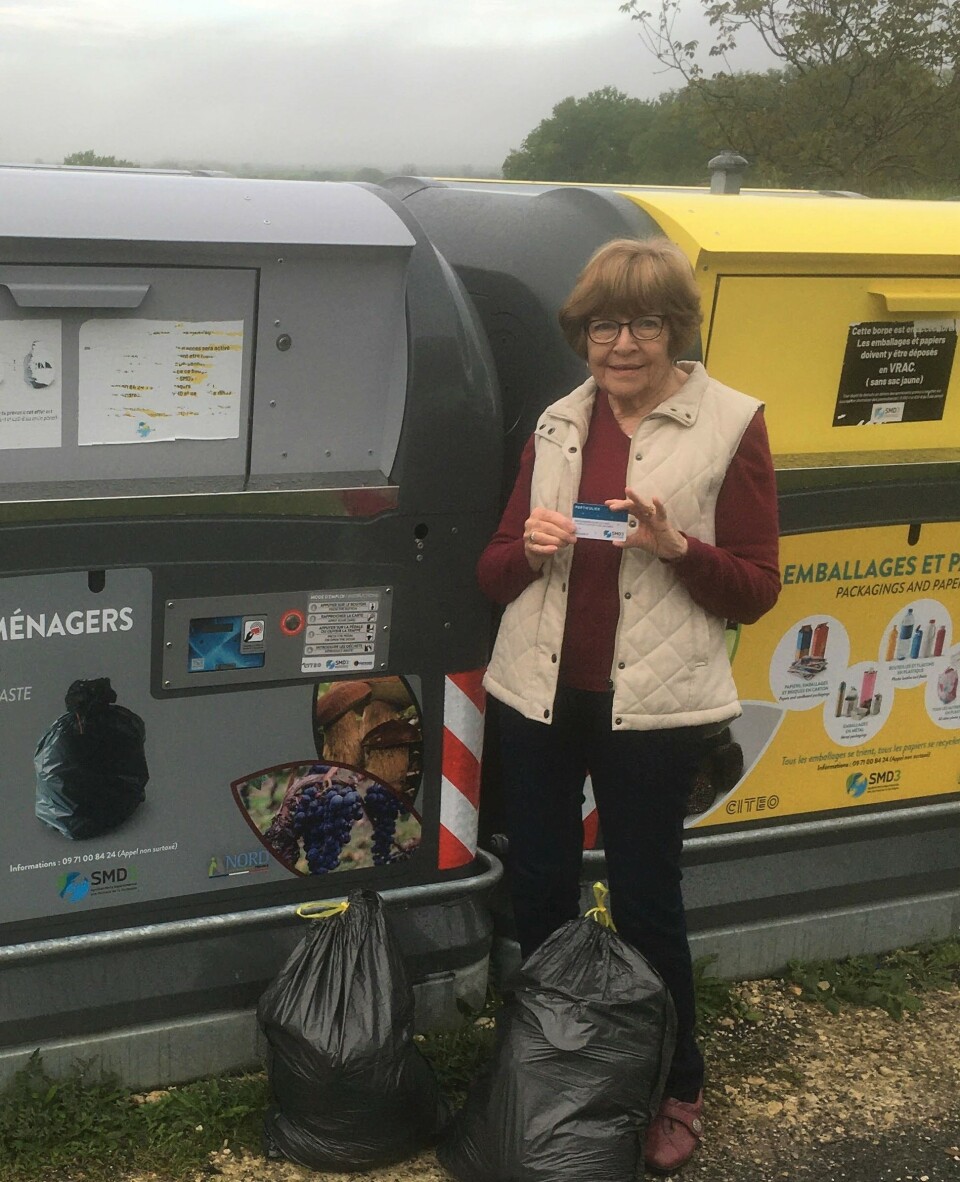-
La Voie Bleue: European Cycle Route of the Year is in France
700km bike path linking Luxembourg and Lyon has been crowned winner of the 2026 title
-
MAP: See how your location in France affects online food shop prices
New analysis shows how your shop compares on average
-
Further sightings of processionary caterpillars in France prompt action from local authorities
Caterpillars have arrived early after mild winter
French homeowners challenge ‘pay per bag’ waste charge
Residents are preparing a legal challenge to a new waste collection charge that, they say, penalises the elderly and people with disabilities

In January, Dordogne waste collection syndicate SMD3 introduced a redevance incitative (incentive charge), where locals pay for the amount of waste they produce, replacing the traditional tax based on the theoretical rental value of properties.
Read more: Maggots, protests: Dordogne reacts to ‘pay-as-you-throw’ waste system
Door-to-door collections have also been replaced with points d’apport volontaire (PAV) – collective bins – across much of the department.
Residents must use a card, which is loaded with a certain number of openings, to access the bins.
Read more: Dordogne: Do I need a special card to make a visit to the tip?
Each household is charged a fixed €109 fee, plus an additional fee for a certain number of openings: from 16 per year for a single-person household, to 52 for seven or more people, meaning the total rate (including fixed and variable charges) ranges from €192.50 to €380.40.
One opening allows you to dispose of two 30l bin bags.
Additional openings beyond your allocated number are charged at €5.22 each.
People in tears
“I receive phone calls every day from people in tears,” said Florence Poumarède, who founded the Association des Mécontents de la Collecte des Déchets en Dordogne (AMCODD) to oppose the new system.
The group has 1,200 members.
A lawyer representing the association has appealed against the introduction of PAVs in a Bordeaux court, and is preparing to request that the incentive charge be overturned as well.
People with reduced mobility can benefit from door-to-door collection, but only if each member of the household has a carte mobilité inclusion disabled badge, and this is also significantly more expensive.
“People are made to pay for the system as if it is their fault that they are sick or disabled,” Ms Poumarède said, adding: “I don’t see how it is saving money for the lorry to stop at number 2 and number 10, but not 4, 6 or 8.”
SMD3 has said it will introduce a donation system, whereby people who do not use all of their openings can ‘donate’ them to people who are incontinent and therefore need to empty their bins more frequently, but Ms Poumarède doubts the scheme will ever see the light of day.
Protests
While awaiting the outcome of the legal challenge, many locals have been voting with their feet – and their bin bags.
Rubbish has piled up next to collective bins in areas where residents have refused to use their badges.
Others, however, are incapable of using the bins correctly, Ms Poumarède said.
“Half the time, the card doesn’t work, half the time, the bin is full, and often elderly or disabled people are unable to step on the pedal while holding the bin open and dropping in the bag.”
She also believes the incentive charge is a misnomer.
“Lots of people aim for zero waste, and they don’t need that many openings, but they won’t be rewarded.
It’s counterproductive,” she said.
Second-home owners
Second-home owners have raised similar complaints – they are charged at the same rate as a two-person household: €244.70 in total, allowing for 26 openings.
Brenda Barrington, who lives in the UK, said: “I accept SMD3’s basic standing charge of €109.
There are standing charges for electric and water accounts, but you are not expected to pay for electricity or water you don’t use, whereas SMD3 charges for openings you cannot use, due to the length of the legally permitted stay in France.”
She has written to SMD3 to request a reduction to her bill, saying she and her husband require only 13 openings as they are not allowed to spend more than 90 out of every 180 days in France.
She plans to withhold payment, which she says is double her previous waste collection tax, until she receives a response.
“I also explained that extra openings only encourage people to produce more waste,” she added.
One kilometre to nearest bins
Ms Barrington says she now has to drive almost a kilometre to the collective bins in her nearest town, whereas she could previously walk 100 metres down the road.
SMD3 did not respond to requests for comment. It has previously blamed price increases on the cost of fuel and electricity, and claims the incentive charge will leave some out of pocket, but others better off.
People who live alone in large properties, for example, might pay less, as it is now based on the number of occupants, not the size of the property.
Dordogne is not the first area to introduce this system, but others have taken a different approach to holiday homes.
Since 2015, households in the Communauté de communes du Bassin de Marennes (CharenteMaritime) pay a subscription fee, which depends on the size of their bin, and are also charged for at least eight collections.
Second-home owners are only charged the flat-rate subscription fee, and individually for each collection.
On average, the incentive charge results in a 41% reduction in household waste, and a 30% increase to paper and packaging recycling, says environmental agency Ademe.
Related articles
How rubbish collections and fees are changing in south west France
























